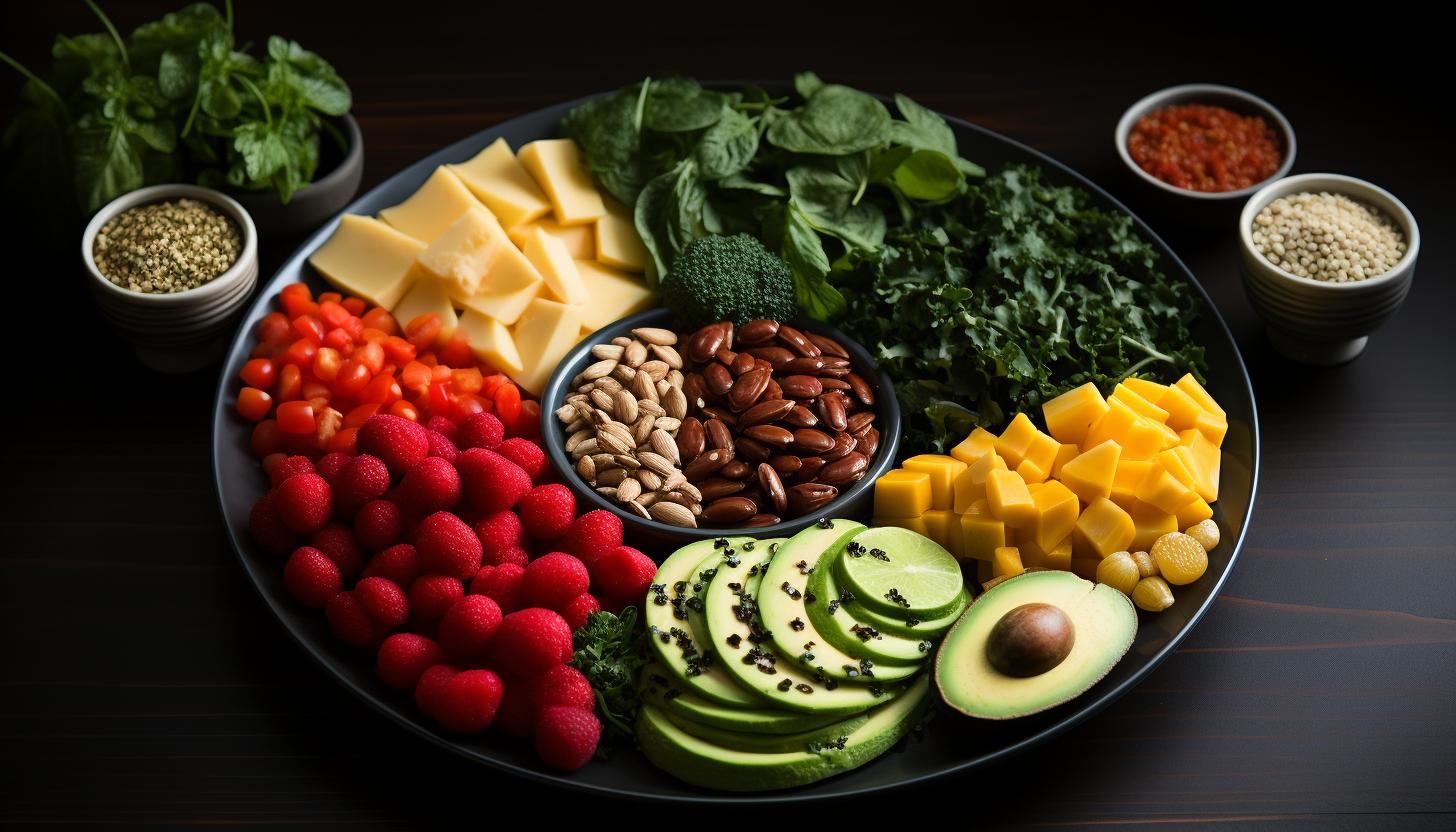Weight Loss Strategies for Runners: Balancing Nutrition and Training

Are you a runner looking to shed those extra pounds and improve your performance? Look no further! In this article, we will guide you through effective weight loss strategies tailored specifically for runners like yourself.
By balancing your nutrition and training, you’ll be able to achieve your weight loss goals while still fueling your body for optimal performance.
Get ready to reach new levels of fitness and become the best version of yourself on and off the track!
The Importance of Caloric Balance

The importance of caloric balance in weight loss for runners can’t be overstated. To effectively shed pounds, it’s crucial to create a calorie deficit, which means consuming fewer calories than you expend through physical activity. This is the foundation of any successful weight loss plan.
When it comes to running, energy expenditure plays a significant role in achieving a calorie deficit. Running is a high-intensity exercise that burns a substantial amount of calories. The longer and more intense your runs are, the more calories you’ll burn. However, it’s important to strike a balance between training volume and caloric intake.
While it may be tempting to drastically reduce your caloric intake to lose weight faster, this approach can be counterproductive for runners. Severe calorie restriction can lead to muscle loss and decreased energy levels, which will ultimately hinder your performance on the track or trail.
Instead, focus on creating a moderate calorie deficit by combining mindful eating habits with an appropriate running routine. Monitor your food intake and make smart choices by opting for nutrient-dense foods that fuel your body without excessive caloric load.
Fueling for Performance and Weight Loss

Make sure you’re fueling properly to optimize your performance and shed those extra pounds. As a runner, what you eat before and after your workouts can greatly impact your energy levels, recovery, and weight loss goals.
Here are four key strategies to help you stay hydrated and fuel up with the right pre- and post-workout meals:
1. Hydration strategies: Proper hydration is crucial for optimal performance and weight loss. Drink water throughout the day to stay hydrated, and aim to consume about 16-20 ounces of fluids 2-3 hours before your run. During longer runs or intense workouts, consider using sports drinks or electrolyte-enhanced beverages to replenish lost fluids.
2. Pre-workout meals: Fueling up before a run helps provide the energy needed for a successful workout while also supporting weight loss efforts. Opt for easily digestible carbohydrates like whole grains, fruits, or yogurt about 1-2 hours before running.
3. Post-workout meals: After a run, it’s important to replenish glycogen stores and promote muscle recovery. Aim for a combination of protein and carbohydrates within 30 minutes of finishing your workout. This could be a smoothie with protein powder, fruit, and Greek yogurt or a balanced meal containing lean protein sources like chicken or tofu paired with complex carbs such as quinoa or sweet potatoes.
4. Snack smart: To keep hunger at bay between meals while still supporting weight loss goals, choose healthy snacks that combine protein with fiber-rich carbohydrates like nuts with an apple or Greek yogurt with berries.
Optimal Macronutrient Ratios for Runners

To ensure you’re fueling properly for your runs, it’s important to understand the optimal macronutrient ratios that will support your performance and recovery. When it comes to meal timing for runners, it’s best to eat a balanced meal containing carbohydrates, protein, and healthy fats about two to three hours before your run. This gives your body enough time to digest and absorb the nutrients, providing you with the energy needed for an efficient workout.
During longer runs or intense training sessions, it’s essential to stay hydrated. Hydration strategies include drinking water before, during, and after your runs. Aim to drink at least 8-10 ounces of water 30 minutes before your run and continue sipping small amounts of water every 15-20 minutes during exercise. After your run, replenish lost fluids by consuming another 8-10 ounces of water within 30 minutes.
In terms of macronutrient ratios specifically for runners, a general guideline is to aim for a diet consisting of approximately 50-60% carbohydrates, 20-25% protein, and 20-30% healthy fats. Carbohydrates are crucial as they provide the primary source of fuel for endurance activities like running. Protein aids in muscle repair and recovery while healthy fats provide long-lasting energy.
Incorporating Strength Training Into Your Routine

Incorporating strength training into your routine can improve running performance and help prevent injuries. Here are four benefits of strength training for runners, along with some of the best exercises to include in your workout:
1. Increased muscle strength: Strength training helps build strong muscles, which are essential for powering through those long runs and improving speed. Squats, lunges, and deadlifts are great exercises to strengthen your lower body.
2. Enhanced endurance: By strengthening your muscles, you can improve your overall endurance as a runner. Exercises like planks and Russian twists can help strengthen your core and stabilize your body while running.
3. Injury prevention: Strengthening the muscles around joints such as the knees and ankles can help reduce the risk of common running injuries like shin splints or IT band syndrome. Single-leg squats and calf raises are beneficial exercises to include.
4. Improved running economy: Strength training improves neuromuscular coordination, allowing you to use less energy while running at a given pace. Box jumps and lateral lunges can enhance power output and efficiency in your stride.
To incorporate strength training effectively into your routine, aim for two to three sessions per week focusing on different muscle groups each time. Remember to start with lighter weights or bodyweight exercises if you’re new to strength training, gradually increasing intensity over time. Always prioritize proper form over heavy weights to minimize injury risk.
Tracking Progress and Adjusting Your Plan
Tracking your progress and adjusting your plan is crucial for maintaining motivation and ensuring continued improvement in your strength training routine. When it comes to setting realistic goals, it’s important to be mindful of what you can realistically achieve. Setting goals that are too ambitious can lead to frustration and disappointment, while setting goals that are too easy may not provide the challenge you need to see progress.
One way to track your progress is by keeping a workout journal. Write down the exercises you did, the weight you lifted, and how many reps and sets you completed. This allows you to see how far you’ve come and helps you identify areas where you can push yourself further. Additionally, take note of how each exercise feels – whether it was challenging or if it felt too easy. This information will help guide your future workouts and ensure they continue to challenge you.
In addition to tracking your workouts, it’s also important to be mindful of your eating habits. Mindful eating means paying attention to what and how much we eat without judgment or distraction. By being aware of our body’s hunger cues and choosing nutritious foods, we can fuel our bodies properly for strength training sessions.
As you track your progress in both strength training and mindful eating, don’t forget the importance of adjusting your plan when necessary. If a certain exercise isn’t yielding results or causing discomfort, try switching it up with a different variation or targeting a different muscle group altogether. Similarly, if certain foods aren’t providing the energy or nutrients needed for optimal performance, experiment with different meal options.
Conclusion
In conclusion, balancing nutrition and training is essential for effective weight loss strategies as a runner. By maintaining caloric balance and fueling with the right macronutrient ratios, you can optimize your performance and shed those extra pounds.
Incorporating strength training into your routine will also help build lean muscle mass, which aids in fat burning. Remember to track your progress regularly and make necessary adjustments to your plan.
Did you know that incorporating just 20 minutes of strength training three times a week can increase your metabolism by up to 10%? So keep running, nourishing yourself properly, and watch those pounds melt away!






